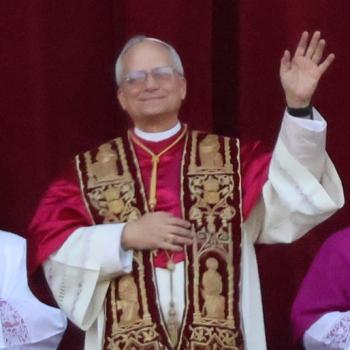Author's Note: I am deeply aware that I have not published "popular blogs" in this space. Instead I have chosen to use it as a space for deep reflection and thought. It feels imperative that our public commons be a place of depth and that we not succumb to the quick hit sound bite seduction.
For this reason, I again wish to offer a several part series, this time on Finding Voice. This is an essential part of the contribution of Hebrew Mysticism, often referred to as Kabbalah, to the great symphony of World Spirituality.
To Live Your Story
To live your story is to move from a state of slavery to freedom. Slavery is not limited to our old image of the oppressed Hebrew or black slave being whipped by the cruel master. We are all potentially free, just as we are all potentially slaves. Our intent in this brief essay is to at least begin to unpack a core intuition of the Zohar—that a free person is a person who has found voice. As we shall see, the implications of freedom are wondrous indeed!
The Hebrew name for the Passover Storytelling Ritual, which celebrates and reenacts the dynamic movement from slavery to freedom, is Pe-Sach. Renaissance mystic Isaac Luria reminded us that Pe-Sach is a combination of two words—Peh, meaning "mouth," and Sach, meaning "talk." Pe- Sach, therefore, means the mouth that talks.
One school of Hasidic masters unpacks this idea by defining redemption as the emergence of speech. To move from a dumb and mute existence to a communal storytelling existence is to undergo redemptive transformation. "To be redeemed," writes one mystic, "is to lead a history-making, storytelling, communing, free existence." To be in exile is to lack history, tell no story, fail to commune, and exist as a slave, silent.
The most oft cited source for this idea is a stunning passage in the Zohar that describes the Egyptian slavery as the "exile of speech." In Kabbalah, every biblical nation represents a different organ of the body; Egypt represents the throat. The mystics read the Hebrew word "Egypt" literally as meaning narrowness.
The throat is, of course, the narrow, constricted passage between the wide spaces of the heart and mind. The narrow throat, Egypt, is thus the ideal symbol for the exile of speech. Speech remains caught in the throat, in the dark passage, and can't make it to freedom's gateway, the mouth. Redemption comes in the birth of the word. In the actual process of your retelling, you reclaim your story. But to be capable of retelling your story you need voice. Redemption then is the process of finding voice.
The Greatest Persecution
In the Nazi concentration camps, certain people were referred to as mules. They were so broken that, although not physically impaired, they could no longer speak. Among animals, mules are the hybrid of a horse and donkey, unable to reproduce themselves. These human, muted mules were so traumatized, their souls so mangled, that they too were unable to "reproduce themselves"—to express themselves in speech.
The great master Kalonymous Kalman of Piacezna wrote from the flames of the Warsaw ghetto that the torture of the exile is not only in the physical suffering but in the inability to cry out, the loss of voice. "The people have become mute," he cried out in a teaching given in 1940, just weeks after his son and daughter-in-law and many of his disciples were brutally killed.
The teaching was on the story of Joseph and his brothers in the book of Genesis. In a dream, Joseph sees "the binding of sheaves in the midst of the field. And behold my [Joseph's] sheave, rose up." In the simple reading of the text, this is a dream of Joseph's future power. The bound sheaves represent the servility of his brothers while the rising of his sheave is an expression of his potency. Joseph is predicting he will be lord over his brothers.
Kalonimus Kalman uses the classical interpretive method of the mystic—reading the text independent of its context (here, Joseph and his brothers) and focusing on subtle wordplays and dual meanings—to extract a deeper spiritual meaning. For Kalman, the sheaves represent his disciples. The word for sheave in Hebrew also means "mute": "My disciples are mute in the field of the spirit." They have lost voice. Their suffering is so intense that it defies and destroys all expression. "However," continues the master, "my sheave—that is, my muteness—must rise." By this he means, "I must find voice."
Kalman sees the role of the mystic leader, himself, as retaining voice, holding on at all costs to the ability to talk. He does not mean speech in the technical sense, of which even the slave is usually capable. He refers rather to the ability to have the voice that allows you to remain the storyteller of your own tale—even in the face of Nazi horror.




